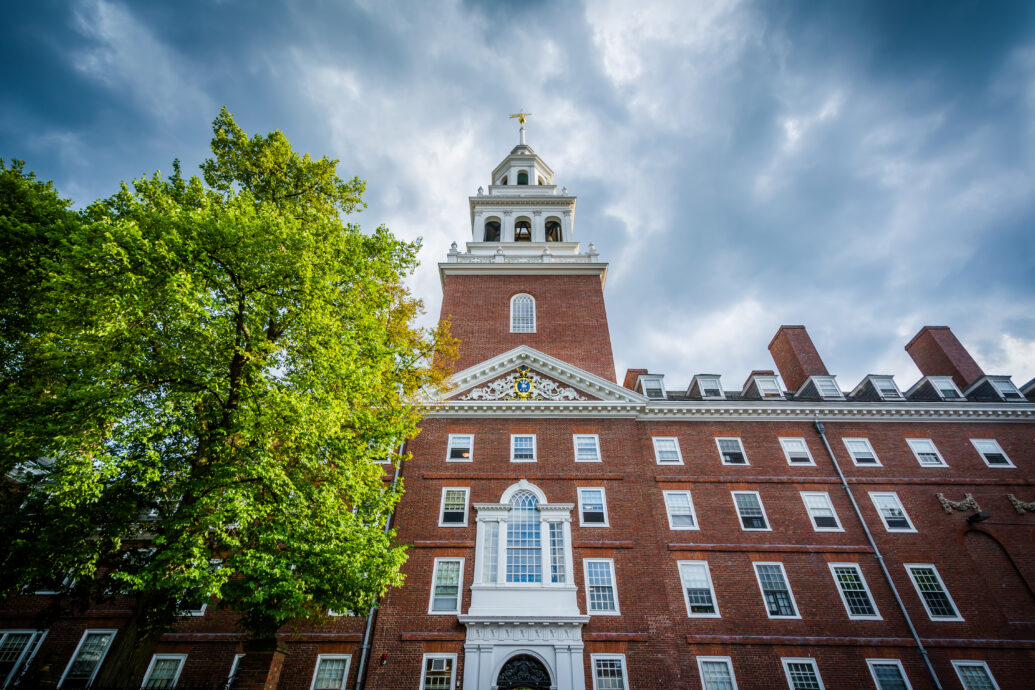Harvard currently faces a lawsuit alleging discrimination against Asian Americans, and the facts reveal the divisiveness of counting by race.
Third-Rate Governance for First-Rate Universities
The resignation of Claudine Gay provides a window into many pathologies of elite universities—antisemitism on campus, the prioritization of DEI over merit, and plagiarism among academics. But it also reflects their poor governance. The Harvard Corporation made mistake after mistake—first, in deciding to hire Gay, then, in defending her after a disastrous performance before Congress and substantial allegations of plagiarism. They even hired lawyers to threaten the media who were disseminating the truth about her research. Before the choice of Gay, the Corporation had permitted identity politics rather than merit to become such a comprehensive governing principle for Harvard that an objectively absurd candidate like Gay could seem a logical choice.
Governance at elite universities is insular, unaccountable, and marred by conflicts of interest that prevent it from being focused on the historic mission of the university, encapsulated on Harvard’s coat of arms: seeking truth. Many nonprofits face similar structural difficulties that create a gap between the performance of their leadership and the fulfillment of their mission, but elite universities face added difficulties. They are so wealthy and market forces in elite higher education are so weak that there is no continuous pressure disciplining their behavior. Moreover, the returns in prestige and other benefits from being on an elite board of trustees are so substantial that members pull their punches to stay in the good graces of their fellows.
Only when some cataclysmic event like the Hamas massacre prompts campus upheaval, and only when a group of activists like Christopher Rufo, Aaron Sibarium, and Bill Ackman take advantage of it will the boards of these universities be called to account. And a reckoning is in order. Better governance structures would help improve universities without the dangers created by direct intervention by the state or periodic, short-lived populist eruptions.
The Roots of the University Governance Problem
As with many boards of trustees that oversee universities, the Harvard Corporation is wholly self-perpetuating. When someone retires, his or her colleagues elect his or her successor. Some elite universities do set aside a few trustee positions to be elected by the alumni, but these are not open elections. The alumni who run for these spots are chosen by the nominating committees, which are usually close to the university administration. While it is possible to challenge these nominees with an insurgent, the likelihood of beating the slate with an official imprimatur is slim, and such challenges are rare. For instance, a challenger at Yale in 2021 was the first in nineteen years.
Because of the restricted selections process, most elite university boards of trustees are birds of a feather—chosen for their social and ideological compatibility, resulting in group think, however diverse the ethnicity and gender of their members may be. At poorer universities and other nonprofits scrounging for support, the need for big donors provides a check on this insularity. The rich, particularly the newly rich who are especially grateful to their alma mater, made their money from a variety of industries and are likely to have more diverse views of the world.
But because Harvard sits on an endowment of 50 billion dollars, its trustees do not need to incentivize all the biggest donors by putting them on the board. They can pick and choose. And, like a club, they will be wary of those who might want to argue about fundamental matters. That kind of disagreement makes for a far less pleasant time in what, after all, is an avocation. When the profit motive is absent, people substitute other satisfactions, and one of the greatest is associating with people who reinforce the notion that one has sound and laudable views of the world.
And in our current environment, the built-in tendency toward conformity on university boards means left-liberal homogeneity. For instance, the twelve members of the Harvard Corporation are headed by Penny Pritzker, Obama’s Commerce Secretary. Another Obama official on the board, as well as a former Democratic appointee of the California Supreme Court who now heads up a left-wing foundation. Ninety-nine percent of the campaign contributions of members of the Corporation went to Democrats.
Trustees have a mutual interest in protecting one another so they can continue to enjoy the prestige of their title and the advantages of super-legacy admissions.
How likely is it that any of this group would have acted even as a devil’s advocate, questioning the appointment of a professor like Gay with a very thin publication record but the social-justice views that they largely share? More generally, would any member likely have opposed affirmative action, and thus taken the position of most Americans? Interestingly, the Corporation had no Asian members until 2022, even as it faced allegations that the university’s affirmative action policy discriminated against Asians.
We have evidence that elite university boards will take action to suppress the inclusion of heterodox views. Until recently, Dartmouth had a legal structure where the alumni elected half the trustees to the board. Beginning in the 2000s, the alumni, dissatisfied with speech codes and the lack of attention given to undergraduate education, started electing trustees who ran against the approved slate of alumni. The university responded by eliminating parity between alumni and the self-perpetuating charter trustees, creating instead a two-thirds majority in favor of the charter trustees. They also gave various advantages to the administration-approved slate of alumni candidates, like selecting the slate after the challenger trustees were nominated, so as to choose those most likely to blunt the challenger’s appeal.
If this was not enough, they also kicked one of the petition trustees off the board by refusing to re-elect him for another term—a choice of the board, not the alumni. This defenestration illustrates yet another problem with boards of trustees: they can penalize dissent. Given that being a trustee of a university is a nice social perk (one that, to boot, greatly advances the prospects of their children’s and grandchildren’s admission to the selective institution), this power reduces trustees’ willingness to take forceful, contrarian positions. The power of elite universities to provide benefits to members is continuing a conflict of interest that makes their governance worse.
It also helps make boards unaccountable. The trustees have a mutual interest in protecting one another so they can continue to enjoy the prestige of their title and the advantages of super-legacy admissions. After the debacle of Claudine Gay, not one member of the Havard Corporation has resigned! And there is no way to force them out.
Avenues for Reform
Universities have lost a lot of support among the public in recent years because of their growing politicization and their illiberal tendency to deplatform unpopular views. As a result, politicians are introducing a variety of proposals to clip their wings. For instance, J. D. Vance tried to pass legislation to approximately triple the taxes on the endowment income of elite universities. But this is a blunderbuss approach. A well-run university is likely to use the money better than the government, increasing our scientific and cultural knowledge. Others have suggested laws to prevent discrimination against conservatives, but antidiscrimination laws are unlikely to be effective because most plaintiffs would become academic pariahs, even in the uncertain event that they won money for their claims.
A better way to improve higher elite education would be to change the structure of governance so that boards would no longer be so insular and unaccountable. Universities must be better run if they want to continue to enjoy the advantages of tax-free endowments. Reforms could begin by requiring trustees to be elected in open ballots from among the alumni. It could require that the terms be fixed and limited in the number of opportunities for reelection. It could even require a structure for recalling trustees.
Placing the alumni in charge would make for a more responsive and epistemically open university. Alumni have more varied viewpoints than faculty, administrators, or members of boards of trustees. They represent almost three generations, creating the kind of intergenerational perspective that contributes to wisdom. University administrations are likely to be more cautious in pursuing the latest ideological fad when they recognize that they will be under the scrutiny of a pluralistic, talented polis.
Currently, alumni are largely ignorant of what goes on at their university except perhaps for the record of its football team. But actual campaigns and the prospects of election that will make a difference in the life of their alma mater will stir interest and debate. In our social media age, websites devoted to publicizing and analyzing what is going on at individual campuses, particularly of elite universities, would arise, if real elections were in the offing.
To be sure, this change in governance would not make universities conservative. But that should not be the goal of higher education reform. It should be to prevent universities from being so captured by a narrow political sliver of our society that they can no longer be epistemically open to a variety of views and no longer focused on merit when it conflicts with ideological objectives. Government cannot effectively direct the yearly operations of universities any more than it can corporations. But it has set rules promoting sound corporate governance. Given the structural features that now lead to the unaccountable, politically sectarian university, we also need rules to promote better governance of what are our most important nonprofit institutions.



